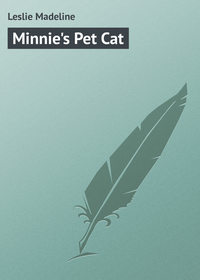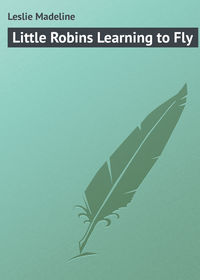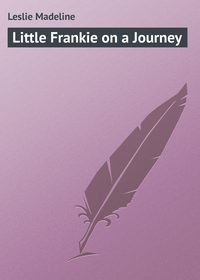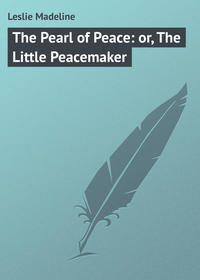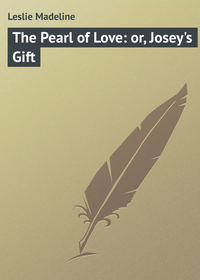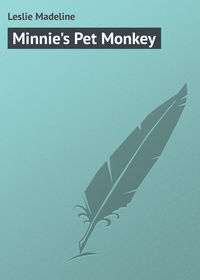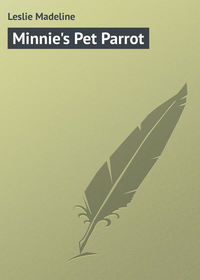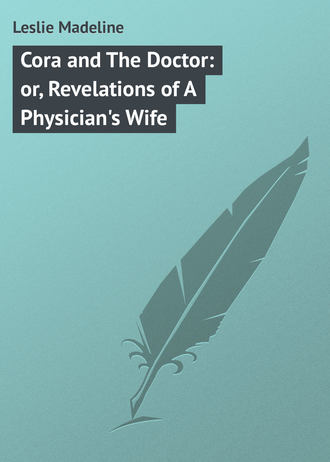 полная версия
полная версияCora and The Doctor: or, Revelations of A Physician's Wife
To lose a parent under any circumstances is a heavy affliction; but to lose such a father, and to be unable to administer to his comfort, by his sick bed; to receive and treasure the words of love and wisdom which fall from his lips, – to hear his last prayer, and receive his last blessing, is indeed a sorrow heavy to be borne. You, my dear my only surviving parent, have one source of comfort, which though it may at present aggravate the loss you have sustained, will yet be an unspeakable blessing to you; and that is in the precious memories of your dear husband. These remembrances of the past, how will you live in them after the first poignancy of your grief has abated; how greatly will they sustain you.
I can truly say, that not one unpleasant word, not one unholy expression comes up to disturb the hallowed remembrance of my dearly loved father. On the contrary, every hard feeling is softened, every unkind thought subdued, when I think of his meek, loving spirit, and recollect his words of love toward all mankind. "Dear, dear father! And shall I never see thee more? never more gaze into thy mild blue eyes, and see the looks of parental fondness beaming there – never more feel thy warm embrace, or hear thy gentle voice say, 'my daughter!'"
Ah! in the midnight hour I see thee oft,And hear thy voice —Thy mingled words of love and tenderness.And thou dost point me to the promis'd land,Where now thou dwell'st —The better land of never ending bliss.My dear mother, if anything earthly could alleviate a sorrow like mine, it is the hope, though yet faint, that I shall ere long look upon your dear face and from your own lips hear the answer to the many questions my heart yearns to ask. Do not disappoint me. Have I not a claim upon you for a few years? I can anticipate one objection you will feel in leaving the spot consecrated as the resting place of your beloved husband. But, dear mother, he is not there. He is with his Saviour, and the throne of grace is as near us in America as in England.
My dear Frank is almost as earnest in this request as I am, and will meet you in New York, if Isabel or Nelly will go with you to Liverpool and put you in charge of some one coming direct to that place. I long to show you my treasures. Pauline you will love as if she were your own; and Nelly's face is wreathed in smiles at the name of grand-mamma Gordon. Franky is a merry, joyous little fellow, who wins his way to every heart. He holds out his arms to any one who comes in, and never was the old adage, "love begets love," more true than in his case; for many persons who are not in the habit of noticing children, are so well pleased at the readiness with which the child concludes them to be friends, that they are never weary of praising him.
CHAPTER XXXIII
"In the joy of a well ordered home, be warned that this is not your rest;
For the substance to come may be forgotten in the present beauty of the shadow." Tupper.
Tuesday, August 6th, 1850.We were rejoiced, dear mother, to hear of your safe arrival at home, and the hearty welcome you received from your children and grand-children.
With Isabel's four, and Nelly's two little ones, you really have quite a flock. I wish they could all be together once. I long to have my children acquainted with their English cousins.
Pauline is quite inclined to commence a correspondence with Isabel's Ernest. You were so much pleased with her perfect simplicity and artlessness of character, I will relate a little incident which occurred since you left. The Doctor and myself were invited to a small party at Mr. Mansfield's, and as has often occurred of late, Pauline was included in the invitation.
She met there quite a number of young ladies of her own age, as well as many older persons. In the course of the evening music was called for, and some of the young ladies were requested to play upon the piano or harp. Misses upon whom hundreds of dollars had been expended for instruction in music, and who had been daily practising for many years, now refused to gratify their parents, or friends, by an effort to play.
One young lady "couldn't think of it," and with a great affectation of modesty, "never could play if any one was by." This same young lady in the course of the evening, not only did play, after being sufficiently urged to do so, but laughed so loud that her rudeness arrested the attention of all present. Another young miss had a "very bad cold;" the cold however subsided after sufficient pleading to sing from a young gentleman near her.
But I was intending to speak of my simple-hearted Pauline. She appeared much astonished at the unwillingness to oblige, which these young girls manifested; and when one of the company said, "here is a young lady, who, I think, will give us some music," she very gracefully walked to the piano-forte, pleasantly saying, "I shall be very happy to oblige you." She played, by her own selection, some simple pieces which she accompanied with her sweet voice.
The lady was moved to tears, while the young people crowded around her, eagerly asking for more. She willingly complied, and played one piece after another as they were selected for her, and with such beauty of expression and even brilliancy in the execution, that I was not only delighted by her sweet manner, but proud of the success of my first pupil.
Mrs. Marshall sat near me, and said with tears in her eyes, "My dear Mrs. Lenox, you have a great treasure in that lovely girl," (and so indeed I have.) "I hope," she continued, "that the young ladies will endeavor to imitate so worthy an example."
Wednesday, August 7th.I have given the children a holiday, on account of the intense heat. I am richly repaid for all my care in the education of Pauline, by the aid she is to me in the care of her sister and brother.
Franky loves her as a teacher, even better than he does me. I fear, he sometimes imposes upon her good nature and her great love for him, by his inattention and restlessness during school-hours. But I really cannot blame them such a day as this, with the thermometer at ninety degrees in the shade.
There is a great deal of sickness in the town, and the Doctor has a number of cases of typhus fever. I think such cases have occurred every year about this season. He now realizes the benefit of so efficient a partner as he finds in Doctor Clapp, whose days of leisure have been long ago forgotten, or only remembered to be sighed for. He has removed to a pleasant residence down in town, and his good wife finds ample employment in the training of her numerous little flock, leaving her culinary department, in which she was so skilful, to the aid which her husband's abundant means enable him to provide.
Thursday, August 8th.The heat still continues unabated. I should be inclined to call myself sick, if it were not for my anxiety for the Doctor, who appears to me to be quite unwell, though he will not allow it to be anything of importance, but only the effect of riding in the heat. I do believe physicians make the very worst patients, and dread the taking of medicine more than any other class of persons.
Saturday, August 10th.We have had a most refreshing shower, which has cooled the heated air. But it does not appear to have revived my poor husband, who though still suffering from a most violent head-ache, yet persisted in going to visit a few of his sickest patients. I am really very anxious, and will set up my authority when he returns. We have long ago settled the vexed question of obedience; I am to obey him when he is well, and he is to obey me when he is sick.
Sabbath, August 11th.My authority was unnecessary. Dear Frank came home at noon, pale as a ghost, and went willingly to bed. I sent for Dr. Clapp without consulting him, and a powder which he administered has somewhat relieved the pain, so that he is now asleep, while I sit by him.
Monday, September 2d.Oh! how much of fear, anxiety and engrossing care has been crowded into the few days which have intervened since I wrote the above.
I have taken my pen, as I sit by the couch of my husband, to relieve my swelling heart. The night succeeding the first call of Dr. Clapp, Frank was perfectly wild with delirium. I was obliged to call Cæsar to help me keep him in bed. He did not know us, and supposed we were trying to keep him from getting home. Oh! how my heart ached, as he entreated to be allowed to go home, saying again and again, "my wife will be so anxious."
Sometimes for a minute, he seemed to recognize mother, and then would talk to her in the strangest manner, thinking her a patient or somebody else. Notwithstanding all the skill of his physician, the unceasing watchfulness of friends, or the action of medicine, my dear, dear husband rapidly grew worse. Indeed Dr. Clapp said, he must have had a settled fever for a week before he took his bed. Early on Monday morning, the twelfth ultimo, our kind Doctor sent to the city for Dr. J – , an eminent physician, to come to Crawford for a consultation.
He arrived by the next train of cars. I watched their looks, and hung upon their words, as if they had the power of life and death in their hands. I knew that Dr. Clapp considered my dear husband a very sick man; but oh! I did not realize till then, that there was hardly a hope of his recovery. Dr. J – looked very grave, and when his brother physician in a low voice, pointed out some of the symptoms, he shook his head.
I went silently from the room; I could contain myself no longer. They soon retired to consult upon the case, after which I begged them to tell me exactly what they thought of their patient. Dr. Clapp turned hastily away, while Dr. J – pressed my hand, saying, "My dear madam, we are all in the hands of God."
I almost gasped for breath, as I tried to say, "but you think he will live, oh! say that he will live."
The kind Doctor put his handkerchief to his eyes, as he answered, "while there is life, there is hope, but I ought not to deceive you."
"Oh!" said I, while weeping bitter tears, "I can't hear you say that I may not hope."
Dr. Clapp wrung my hand, and wept aloud, "I shall lose the best friend I ever had," said he, while I sank back almost fainting into a chair. Dr. J – sat down by me, and tried to compose my feelings, saying that I should be ill myself, and that my dear husband had lived a useful life, and was prepared to enter upon his glorious inheritance; but every word cut deeper and deeper into my heart, convincing me that they had given up all hope. I pressed my hand to my head which seemed to be flying off, and rushed from the room. I flew to the farther end of the house, to a room the most remote from that where lay my sick, and as they thought, my dying husband. I threw myself upon the bed and wept aloud. My heart was in a dreadful state of rebellion against my Maker. The most awful thoughts came into my mind; but I drove them hence; "Why should I lose my husband? I do not wish to live without him. I cannot give him up," was the language of my unsubmissive heart. But all at once the thought of my horrible ingratitude to my heavenly Father, who had bestowed upon me such a companion, and who had allowed us to live together so many years, struck me dumb. I arose from my bed, threw myself upon my knees, and plead earnestly for pardon, and for a submissive spirit. I knew, I felt, I confessed that I had made an idol of my dear Frank, and I cried fervently for a spirit to say,
"The dearest idol I have known,Whate'er that idol be,Help me to tear it from thy throne,And worship only thee."Long and severe was the struggle with my hard and undutiful feelings. But the answer came at length, and with tears which were no longer bitter, I arose and was enabled by divine grace to say, "The Lord gave and the Lord taketh away, blessed be the name of the Lord." I felt a sweet peace in giving him, whom I best loved to my Saviour, and it seemed but a very short time before I should go to him and dwell with him, where there would be no more sorrow, and no more parting, but where all tears would be wiped from our eyes.
When I went back to the sick room, however, and saw the pale, haggard countenance, the sunken eyes, and heard the labored breath, my heart sunk within me, as I realized that he would soon pass from my sight, without one parting word, one farewell kiss. As I stood gazing at him, the inspired passage occurred to me, "In whose hands our breath is, and whose are all our ways." I then remembered that God had power to restore the emaciated form before me, to new life and vigor. The thought that it might be his will to give my husband back to me, even from the borders of the grave, sent the warm blood throbbing through me. I again poured out my heart in prayer to God, not for myself, but for the life of my husband. I renewedly dedicated him to God. I cried out, "Oh! my heavenly Father, give me his life."
Dear mother also was besieging the throne of grace in his behalf. But he lay unconscious of the agonized hearts throbbing near him, anxiously watching every breath he drew.
Dr. Clapp was to be with him through Monday night. Mother besought me to try to sleep. I wondered if she thought I could ever sleep again? But I only shook my head. The crisis was rapidly approaching. I saw that not a sigh, or a groan escaped the notice of our kind physician; but I was calm. I even wondered at myself. A strong, but invisible arm was put round about me to strengthen me, and I leaned upon it to sustain my drooping spirit. The night passed slowly away, the morning began to dawn; not a word had been spoken for the past hour. Dr. Clapp sat with his fingers upon the wrist of his patient, where he could scarce feel the fluttering pulse. Ever and anon he would take the candle from the table, hold it before the face of the pale sufferer, and then silently shade it again.
At length he arose, and putting his fingers upon his lips, to enjoin perfect silence, he withdrew from the room. Nothing could be heard but the ticking of the watch and our own loud breathing. It seemed a long, long time that the Doctor was absent, and when he came in, I saw he had been weeping. In an agony of grief my very soul yearned for one more look, one more word of love. I hardly dared to uncover my face. When I did so, the Doctor was wetting his patient's lips with a sponge. Then he sat down again, with his fingers upon the pulse.
What had come over the man? I wiped my eyes to see clearer. His whole face was lit up with an expression, to which it had for many days been a stranger; but I dared not hope. Again and again the sponge was dipped in the cup and applied to the parched lips, and still we sat, as though we had no tongues, or knew not how to use them, when feeling that I could not breathe, I silently arose and left the room. The kind watcher followed, and leading me down stairs to the library, shut the door, and in a husky voice said, "My dear Mrs. Lenox, the crisis has passed, and your husband still lives."
I started from my chair. "Compose yourself, my dear lady," he continued. "There is hope that he may recover," and our sympathizing friend wept tears of joy.
But for me the reaction was too great. I felt myself falling to the floor. When I recovered Pauline was bathing my temples. Dr. Clapp had left the room and returned to his patient. I speedily recovered and followed him, and was softly stepping toward the bed where mother sat holding her beloved son by the hand. But the physician saw me and motioned me back. I withdrew into the hall, where he soon joined me, and leading me away from the door, said, "Your husband is now conscious, and will recognize you. Can you compose yourself? The least excitement may be fatal to him."
After a moment, in which I tried to hush the loud beating of my heart, and to breathe a prayer for strength, I said, "I think I can," and we again entered the room. I walked silently to the bed, and looked at my darling Frank. His eyes were closed and his face closely resembled death; but when he feebly opened his eyes, the light of reason beamed thence, and he knew me. I kissed his forehead and almost flew from the room. My heart was filled with the most delightful emotions of gratitude and joy, "and though my voice was silent, being stopped by the intenseness of what I felt, yet my soul sung within me and even leaped for joy." The emotion was so intense as to be nearly allied to pain. I pressed my hand to my heart to keep it from bursting. I heard a gentle step, and my sweet Pauline sat by my side, and drawing my head to her breast, sought to soothe my agitated feelings. She had been weeping. "Dear mamma," she whispered, "I am so happy, I have been trying to thank God for making dear father better."
"My love," said I, "will you thank our heavenly Father for me?" As we sat, she breathed out her heart to God like one who was used to going to him, as to a tender father. I pressed her to me and thanked God for so great a treasure.
Wednesday, September 4th.I was proceeding with my writing, the day before yesterday, supposing Frank to be asleep, when he put his hand upon mine, and said, "my love, you have wept quite enough."
While scarcely conscious of the fact, I had been continually wiping my eyes, to enable me to see the page. Many tears I see have fallen upon my paper.
"They are tears of gratitude," I replied, lifting his hand to my lips. "My heart is so full it overflows." There were answering tears in his eyes then; "Cora," said he with the utmost tenderness, "while I lay upon this bed, and in the near prospect of death, I saw that I had made idols of the dear ones God has given me; and I resolved, his grace strengthening me, that I would devote myself more entirely to him. We cannot love each other too much, my own wife; but let us love God more. While we love each other, and our dear children, let us not forget him, who so loved us as to die for us."
Tuesday, September 10th.My dear husband gains but slowly. He has not yet been able to have his bed made, but he says, he does not suffer except from weakness. After being absent from the room about an hour to give Nelly her music lesson, I returned and took Pauline's place by her father's side, requesting her to go out with the children for a walk.
He took up the book, she had turned down upon the bed, supposing I should continue the reading. "I hardly know," said he, "which to admire the more, the skill of the teacher, or the proficiency of the pupil. Pauline is a fine reader, and her voice is very musical."
"Yes," I answered, "I have often thought her voice low and melodious as the daughters of Italy."
"She may be one of them," he replied, closing his eyes. "Cora," he resumed after a short pause, "I have had time to think of a great many things since I lay here, and I feel that I have not dealt justly by our daughter, Pauline."
"Frank," said I, interrupting him, "you do yourself wrong."
"Hear me through," said he pleasantly. "I do not mean that I do not love her enough, for there is no difference in my feelings toward her, and her lively sister; or if any, my love is more deep and sacred to the child of our adoption; but if I should be taken away, she could not inherit a share of my property, as a child. If I ever rise from my bed, I will make a will, so that all my children shall share alike." I pleaded long and earnestly with him to allow me the privilege of making over to her my own property, which he had insisted upon settling upon me.
But he said "no," very decidedly, and when I was calm enough to hear, he explained his refusal to my satisfaction.
"Pauline has no idea that she is not of our blood, and I hope, she may never know it – unless" – said he, "but that is very unlikely" – and stopped.
"I know, you are thinking if we should ever discover her parents; but if we do, she is nothing to them as she is to us. They have never inquired for her."
"Softly," said Frank, with a smile, "I do not think there is any occasion for you to distress yourself; your imagination, I dare say, has already pictured her mother standing before you, ready to take her from your arms."
I laughed, "Yes," I answered, "pretty nearly that; but go on."
"If any such event should occur," said he, returning to the subject from which we had digressed, "a difference between her and them might call up feelings and explanations which would be unpleasant to all concerned."
I fully concurred in this view of the case, and then we discussed her lovely character, and heartily agreed that we had reaped a rich reward for our care of her, in the influence she exerted over her brother and sister.
"Frank obeys her," said I, "quite as readily as he does me, though she never exercises any authority over him. She has a charm, I believe; I don't know what I should do without her."
"I fear," said Frank, "you'll have to give her up some day."
"What for?" said I eagerly.
"Why somebody may come along and win her away."
"She is nothing but a child, only seventeen last June."
"And how many years older, and how much taller was my Cora, when I took her from her mother? You will never know how I loved you for taking the friendless child so closely to your heart. I had looked forward with the hope that God would bless our union, and give us children; but I had not thought of finding one so soon. I have often laughed to myself," he continued, "at the remark dear, good aunt Susy made about my being so impatient 'for a darter I had to pick one up in the streets, and give to you.' Good old soul! She hit pretty near the truth, certainly. Seldom has anything given me greater pleasure than when you taught the little creature to say 'Papa,' and you blushed so rosy too. I dared not say much; I feared you might grow weary of the care. I had not then learned all I have since. But when I saw you give up many pleasures to devote yourself to the little motherless child, and particularly when I witnessed year after year your care of her education, I have felt that you would have your reward."
Monday, September 23rd.Mother and I are now obliged to exert our authority. The Doctor is as hungry as a bear, and says he will not be kept on slops any longer. He spoke so much like a child begging for some cake, or bread and butter, that I had a hearty laugh at him. But though he could not keep from laughing in sympathy, yet he says, "it is a very serious matter; Dr. Clapp has been starving me for a month past, and now I intend to have something to eat."
Mother promised him a slice of toast for his dinner, and he asked half a dozen times in the course of an hour if it were not dinner time. At length I gave him the watch that he might see for himself. When Pauline brought the toast and tea, he entered upon the discussion of them with such a grave face, as if it were of such solemn importance, that Pauline and I had enough to do to keep from laughing aloud, which in the present state of his nerves would never do.
Mother says, "it's always a good sign when children are worrysome."
But the Doctor did not take this speech at all well, and said with a grieved look, "I was not aware I had given occasion for such a remark."
Wednesday, September 25th.We have had war in the camp. But I must explain. I noticed this morning that Phebe was cooking something very savory, but thought no more of it. Mother, Pauline, or I, have always remained with the Doctor while the others are at dinner.
To-day I thought I would remain; but Frank would not consent. Pauline said, "No, mamma, I'll attend to father," at the same time I saw that she was very much flushed and looked really distressed. Frank insisted she should remain, and I went below, wondering not a little at the meaning of all this. After I had carved for the others, I thought so much of Pauline's looks, that I excused myself a moment, and ran softly back to the room.
Judge then of my amazement when I beheld Phebe standing before her master holding a bowl, while the Doctor was putting spoonful after spoonful into his mouth, as fast as he could. Pauline stood by looking as if she were not sure whether to laugh or to cry.
I sprang forward to take the bowl; but quicker than thought, Phebe had caught it under her apron, hoping I had not seen it, while the Doctor looked like a whipped dog. The whole affair was so ludicrous, that it was with the utmost difficulty, I could keep my countenance. But endeavoring to look very stern, I said, "Dr. Frank Lenox, you will please to tell me what you have been eating?" He had already eaten a hearty dinner for a sick man, not half an hour before.


